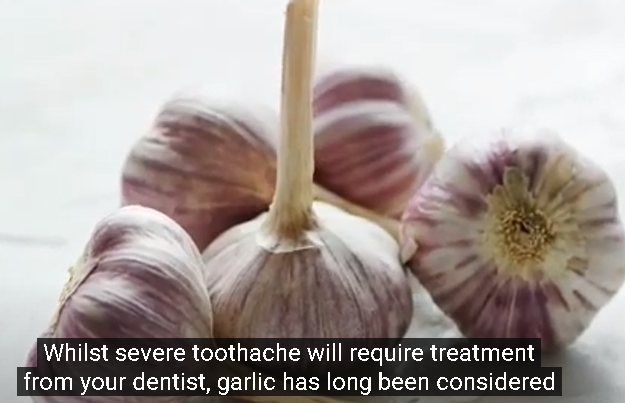Garlic, famously known as the “smelly rose,” is a versatile herb that has been utilized for various purposes throughout history, including cooking and medical treatments. Its potent aroma and flavor are well-known, but it also offers several health advantages, including potential relief from toothaches.
Tooth pain, or dental discomfort, is the result of inflammation or irritation of the nerve endings in the teeth. Typical culprits include dental cavities, periodontal disease, tooth decay, and dental abscesses. Timely addressing a toothache is necessary to avoid further complications. In such cases, garlic can be a natural and cost-effective solution, offering the following benefits:
- Antibacterial attributes: Garlic has strong antibacterial capabilities that can aid in battling the bacteria that cause tooth decay and gum infections. This can prevent the expansion of harmful bacteria, thereby decreasing the risk of further dental harm.
- Pain-relief capabilities: Garlic’s natural pain-relieving attributes can assist in alleviating toothache pain. Applying crushed garlic or garlic oil to the problem area can provide temporary relief by numbing the nerves and reducing swelling.
- Anti-inflammatory characteristics: Tooth pain often comes with inflammation of the tooth or nearby gums. Garlic contains substances like allicin with anti-inflammatory capabilities that can lessen swelling, redness, and discomfort linked to toothaches.
- Natural antimicrobial abilities: Traditional uses of garlic include its application in various infection treatments, thanks to its antimicrobial characteristics. Whether used topically or ingested, garlic can battle oral bacteria that contribute to tooth decay and gum infections.
- Nutritional content: Garlic is packed with crucial nutrients such as vitamins C and B6, manganese, and sulfur compounds. Including garlic in your diet can boost overall oral health, fortify the immune system, and decrease the risk of dental issues.
However, it’s important to remember that garlic is not a replacement for professional dental care. It should serve as a supplemental strategy along with regular dental check-ups and treatments. Overuse or direct application of garlic could irritate or burn delicate oral tissues. So, it’s vital to use caution and seek dental consultation if the discomfort persists or intensifies.

